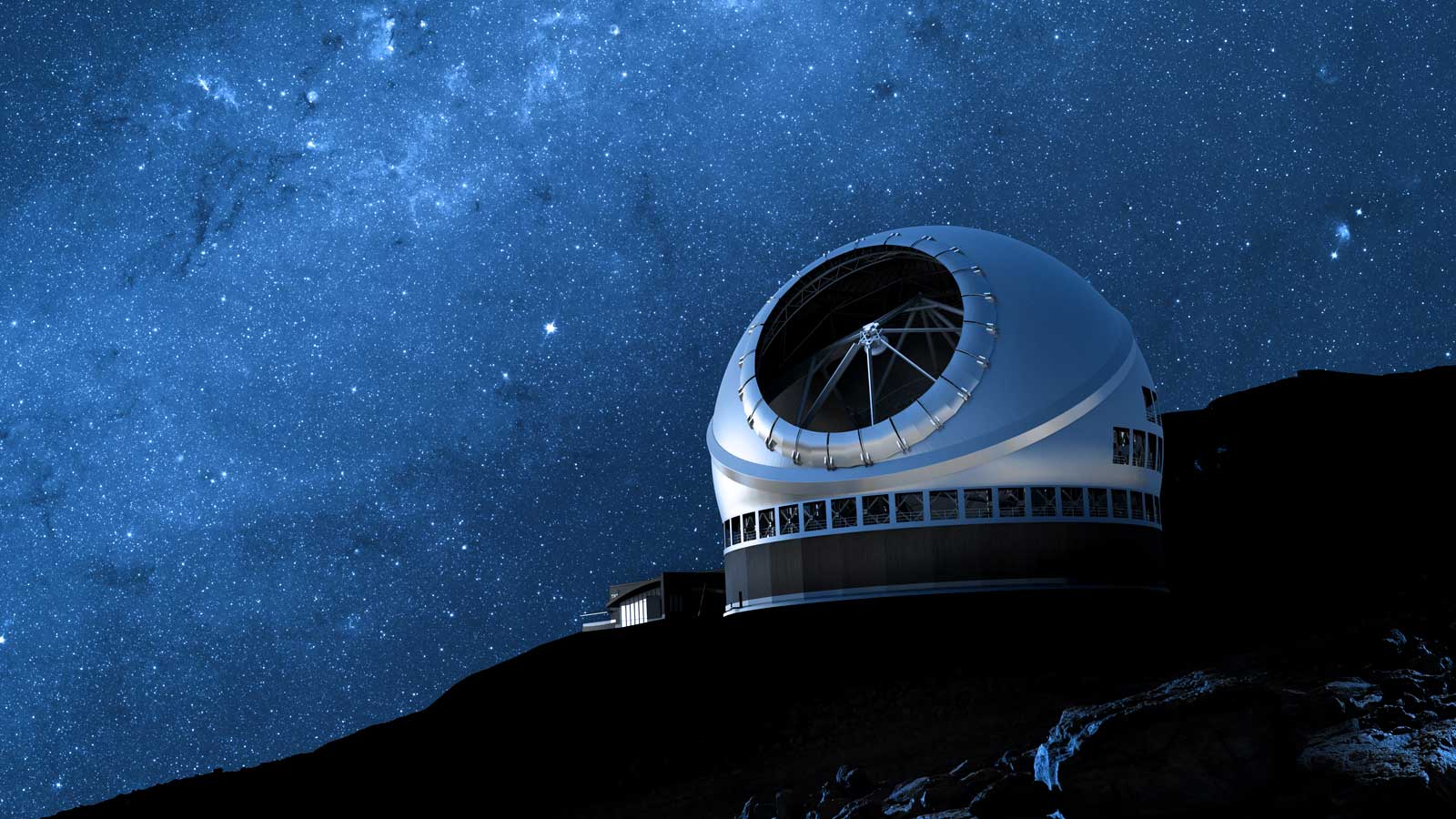
The next TMT Science Forum has not yet been announced.
The TMT partnership has been holding annual Science Forums since 2013. Previous forums have covered a range of topics, typically crossing science areas but always using ideas for science to explore topics that inform the design and operation of the observatory, indentify the priorities for observing capabilities and generate scientific collaboration across the TMT partnership and beyond.
Science synergies in the era of the Thirty-Meter-Telescope - Xiamen, China, November 2019
Discussion of the scientific synergies between the TMT and space/ground -based facilities operating in the 2030s, especially facilities with strong Chinese involvement - SKA, FAST, CSST, Einstein Probe, eXTP and others.
Breakthrough Science With the Thirty Meter Telescope - Pasadena, CA, USA - December 2018
Examining the scientific breakthroughs enabled by the transformative capabilities provided by the TMT.
TMT: Beyond First Light - Mysore, India - November 2017
The forum to launch feasibility studies for future-generation instruments. See the call for Second Generation Instrument White Papers
International Partnership for Global Astronomy - Kyoto, Japan - May 2016
A forum for members of the international TMT community to map out cooperative strategies for developing the observatory and its instrumentation, running the facility, and carrying out science with global reach
Maximizing Transformative Science with TMT - Washington D.C., USA - May 2015
A forum is to think ahead about how to maximize the scientific return from TMT through innovative collaborations, telescope operations, data management, and instrumentation development
TMT in the Astronomical Landscape of the 2020s - Tucson, USA - July 2014
Exploring the synergy between TMT and other facilities in the post-2020 astronomical landscape.
Inaugural TMT Science Forum - Waikaloa, Hawaii - July 2013
Talks and workshops exploring TMT science, first-light and future instruments, observatory operations, archiving and data products, key projects and cross-partnership collaborations, and astronomy education and science, technology, engineering, and math (STEM) opportunities.